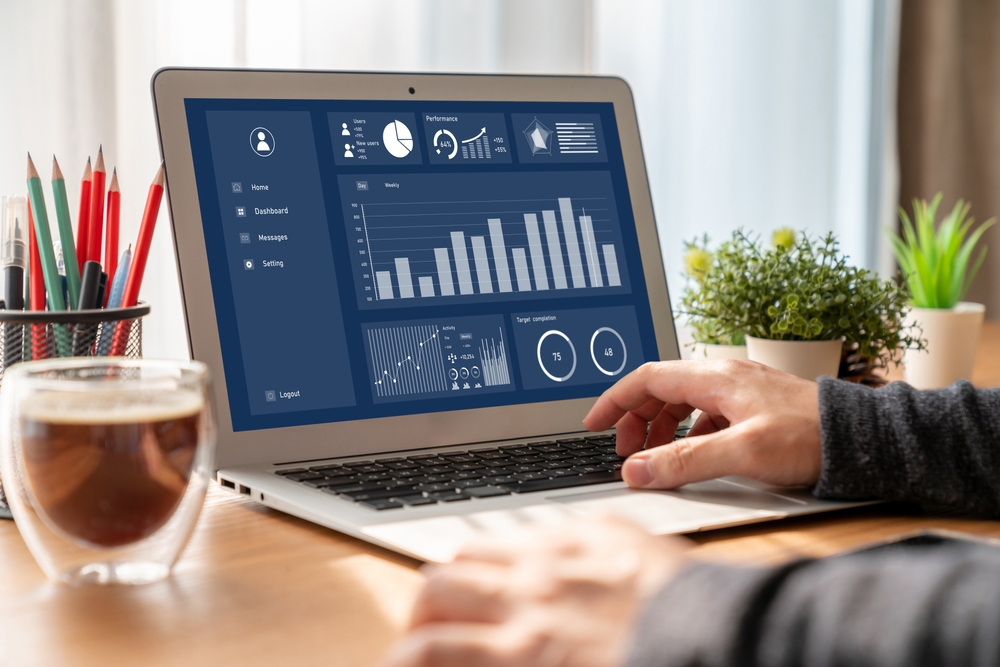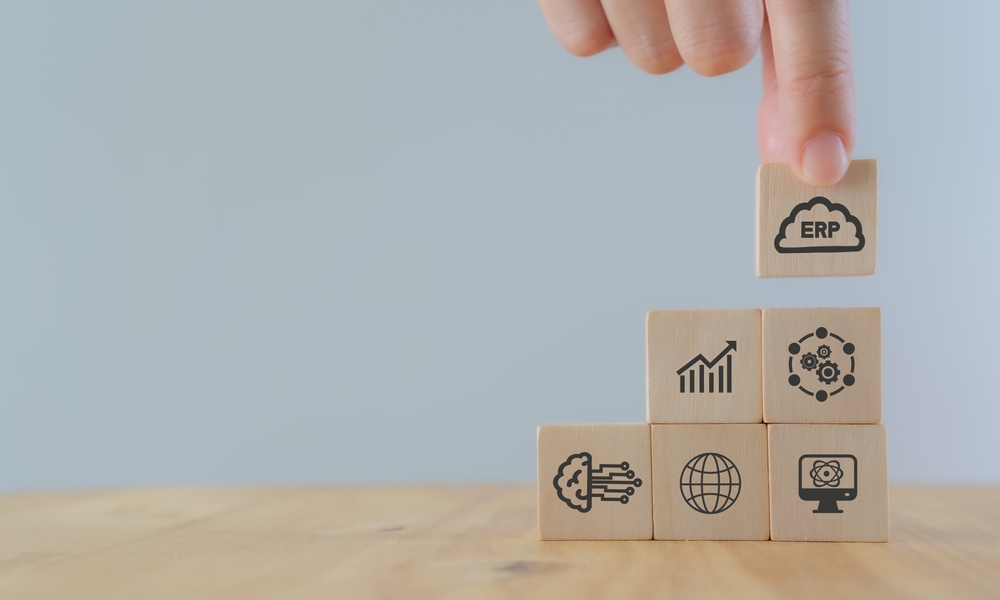
CRM vs ERP: Understanding Their Differences & Which Works Best for Your Business?
6min read
When your company embarks on a digital transformation, you’ll encounter countless acronyms — EDI, PLM, and MIS, to name a few. Among them, a common cause for confusion is the delineation between ERP versus CRM. Understanding both terms can impact your bottom line; after all, ERP systems are costly endeavors, and a single CRM seat can be expensive as well.
So, what are CRM and ERP? Customer relationship management (CRM) and enterprise resource planning (ERP) software are two of the most common tools companies use to automate their internal and external processes. These robust systems gather data from multiple business functions to help you efficiently run your company.
As their names imply, CRM software focuses on customers, whereas ERP software handles critical business processes. Depending on your operations, priorities, and budget, you can use separate CRM and ERP programs or build a comprehensive solution on a single platform.
What is CRM?
A customer relationship management system helps you manage all of your company's interactions with prospects and customers so you can build stronger relationships. The software pulls in data from your sales, marketing, and service departments to create a single source of knowledge. It also uses AI and machine learning to track processes within each department, automate common workflows, and provide actionable insights for each team.
With this information, your employees are better equipped to deliver exceptional experiences across the entire customer lifecycle. Used effectively, a CRM can help you increase sales and cultivate a base of loyal, happy customers.
CRM Features
CRM software serves several essential functions:
- Lead management: Track leads through the sales funnel and identify the prospects most likely to convert.
- Workflow automation: Automate repetitive tasks, such as follow-up emails, sales call scheduling, lead assignment, customer service chats, and marketing emails.
- Behavior analysis: Track and analyze customer behavior using predictive analytics and AI. Access insights regarding purchase readiness or customer service needs.
- Customer contact management: Store all contact information and demographic data in one place.
- Interaction tracking: Record every interaction a customer has with your company, whether it's an automated email, a call with a sales rep, or a proposal.
- Reporting: Customizable reporting features help you analyze data at a glance, so you can track sales performance, gauge the impact of marketing campaigns, identify common service issues, and evaluate employee performance.
CRM Benefits

Benefits of CRM solutions include:
- Keeping employees on the same page: With a CRM, all employees work from the same data set, helping to reduce mistakes and redundancies.
- Building stronger customer relationships: CRMs help identify relationship-building opportunities and act on them at precisely the right time. For example, they can let you know when a lead is ready to buy or send an automated email after a customer engages with your brand on social media.
- Creating compelling messages: Because CRM systems compile customer data, analytics, and interactions, it's easier to segment your audience and deliver highly targeted sales, marketing, and service messages.
- Increasing employee efficiency: By automating time-consuming tasks, a CRM frees up your employees to focus on high-value projects.
- Boosting sales and customer retention: A CRM can track leads and support tickets, notifying sales or service reps when it's time to follow up. This enables faster response times and prevents customers from falling through the cracks, so you can deliver a more positive and consistent experience.
- Planning more efficiently: A CRM can use past data to forecast sales for the coming months, helping you pinpoint trends, identify lucrative channels, and design a strategy that maximizes profit.
What is ERP?
Enterprise resource planning software helps you run your company more efficiently. It's a central hub where you can manage core business processes, such as finances, manufacturing, inventory management, supply chain management, procurement, distribution, and human resources.
An ERP platform is more than a data repository; it also integrates business processes, automates tasks, and enables effective information sharing across the company. At the same time, built-in analytics help reduce costs and improve operations. These factors distinguish ERP systems from management information system (MIS) solutions.
ERP Features
ERP systems provide the following services:
- Business function management: ERP solutions typically include modules that help you manage various functions, including accounting, inventory management, human resources, sales and marketing, production, manufacturing, procurement, resource management, order fulfillment, and supply chain management. They often encompass a CRM function.
- Function integration: The software connects each of the individual business functions into an integrated system. It can also identify dependencies and track orders and projects as they move through the company.
- Workflow automation: The software automates common workflows and tasks, such as order creation, financial reporting, inventory levels, shipping, and payment processing.
- Customizable alerts: When something happens in one part of the company, the ERP can notify other affected personnel.
- Data analysis and reporting: The system collects and analyzes data from all areas of the business and creates reports, forecasts, and insights.
- Financial and data controls: These controls let you limit access to specific data sets for increased security and confidentiality.
ERP Benefits

ERP systems offer these advantages:
- Data-driven decision-making: When company leaders have access to all data from across the business, they can make informed strategic decisions quickly and efficiently.
- Increasing visibility: An ERP system provides full visibility into each of your company's functions. This is useful for employees at all levels; it helps them plan projects, monitor cross-functional dependencies, and respond to changes. It's essential for supply chain visibility.
- Reducing errors: Centralizing your company’s data reduces the risk of an employee or department using outdated or incorrect information.
- Making accounting easier: Since an ERP solution keeps all your financial data in one place and automates common accounting tasks, it helps close the books quickly.
- Boosting productivity: With a high-level view of the company, it's easier to maximize productivity by efficiently allocating resources, handling capacity planning, scheduling projects, and managing production.
- Streamlining operations. The data-analysis function of an ERP system helps spot trends, opportunities, and problems within the organization. That information can save time and create more streamlined workflows.
- Cutting costs. As it streamlines operations, boosts productivity, and increases efficiency, ERP software helps your company save money.
CRM vs. ERP
The primary difference between CRM and ERP programs is the scope. CRM solutions have a narrow focus: sales, marketing, and customer service. ERP software has a much broader scope that includes almost every aspect of your business. CRM systems look outward at customer interactions, whereas ERP systems manage internal processes.
When digitizing your business, it's crucial to identify your current priorities. You might choose a CRM system if your primary goals are to increase sales and improve customer relationships. These systems typically provide value to businesses of all sizes, so they’re useful at every growth stage.
By contrast, ERP software typically provides a higher ROI for large or complex businesses that want to increase efficiency and reduce costs across the organization. You might also choose an ERP solution if your company is outgrowing basic financial management and accounting tools.
What’s the Relationship Between CRM and ERP?
CRM and ERP systems are closely connected. They both help share information, analyze data, and automate workflows to improve operational efficiency. In fact, many companies need both to effectively manage internal functions and customer-facing interactions.
You can purchase individual ERP and CRM systems separately or opt for an all-in-one ERP solution with a built-in CRM module. Popular CRM platforms include Salesforce and HubSpot; examples of ERP systems include SAP Business One and Microsoft Dynamics 365. Some companies start out with a CRM and expand to an ERP down the road.
ERP, CRM, and Beyond: Integrating Your Systems with Orderful
Instead of weighing ERP versus CRM, maximize the benefits of both by connecting the systems. The integration process automates information transfer, saving time and increasing efficiency across your business. You can also integrate a product lifecycle management (PLM) program.
Not sure where to start? Orderful can help facilitate the data exchange between your ERP and CRM systems. Speak to an expert today for customized guidance and an effortless EDI integration.
Go live with new trading partners in days, not months. Orderful’s modern EDI platform standardizes integrations and streamlines testing, getting your business connected with partners 10x faster than other solutions.
Learn Morenewsletter

Talk to an EDI Expert today
Join us on the journey to change the way the world trades EDI
schedule a demo →